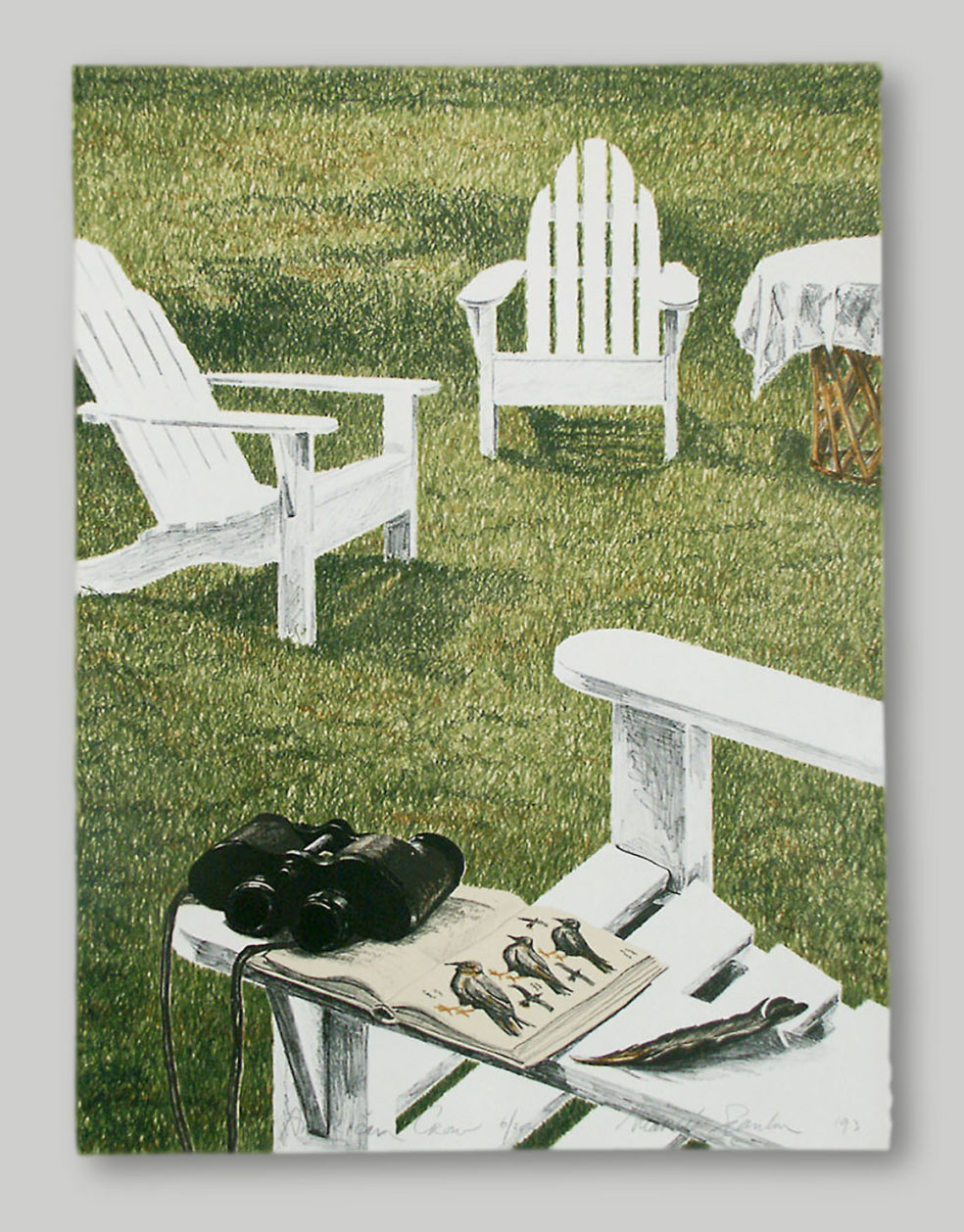Marcia Scanlon grew up in Minneapolis, Minnesota. After receiving her Bachelor of Arts in sculptureand Master of Fine Arts in painting from the University of Minnesota, she moved to New York City in 1970. Scanlon now maintains studios in Soho, NYC, and in rural upstate New York. Her paintings, sculpture, prints, drawings, and artist’s books are in personal, corporate, university and museum collections from Hawaii to Cyprus. She has received commissions for corporate installations, has had several one-person shows, and has been included in gallery and museum exhibitions throughout the United States. Print studios in New York and Minneapolis have produced her monoprints and editions. She has participated in poetry readings in New York City and Larnaca, Cyprus.
Her early work in painting and constructivist sculpture explored the relationships among perception, memory, and narrative in serial formats. In this work she employed geometry and architecture, and eventually moved toward a pastoral setting for a rendering of animals that resists sentimental
projections, instead embodying the alien character of the sensate world. Bringing all these elements together, she now uses a matrix of Greek and Roman mythology for all aspects of her creative work. Scanlon’s interest in mythology can be traced to a set of children’s encyclopedias, where the articles on art and myth were, to her, the most riveting. In college, upon finding that Greek and Roman concepts of visual form permeate formal art history, she began to note that, throughout American culture, elements of Greek and Roman architecture, sculpture, and painting have lent weight to political and educational institutions as well. In ancient Greek and Roman culture, chiefly mythology, she found an antidote to the unadorned Protestantism and pragmatism of Midwestern America. Her rediscovery
of Ovid’s Metamorphoses was particularly influential on her work, both representational and abstract. For many years, her country neighbors’ livestock and the local fauna, as well as her friends and relatives, have entered into her reworking of mythology. Her union of ancient with contemporary images arises from the Greek and Roman myths now alive in her personal landscape.
